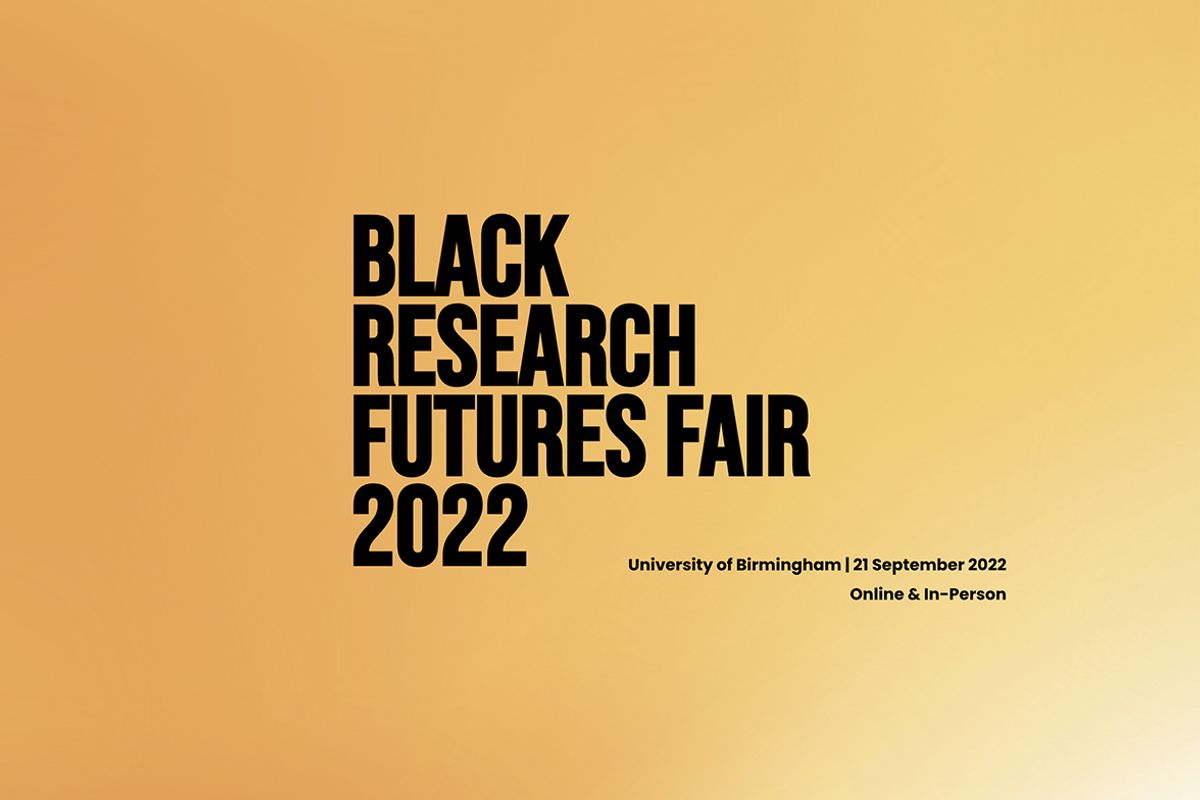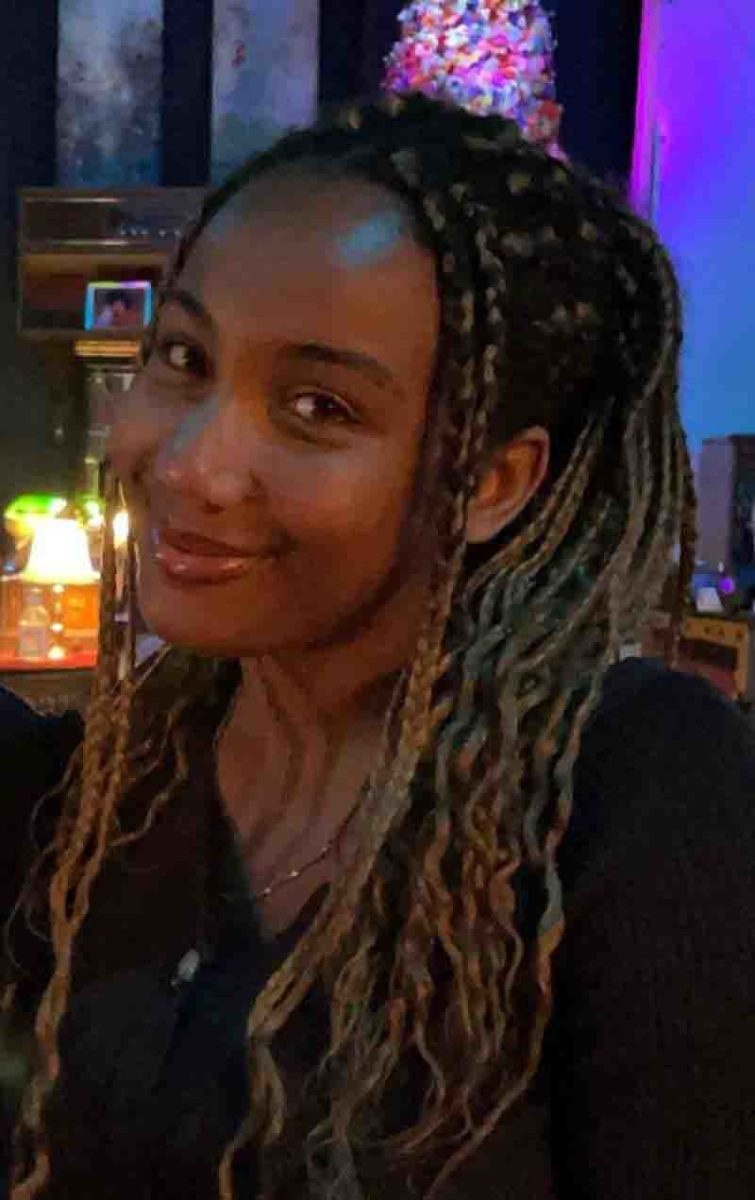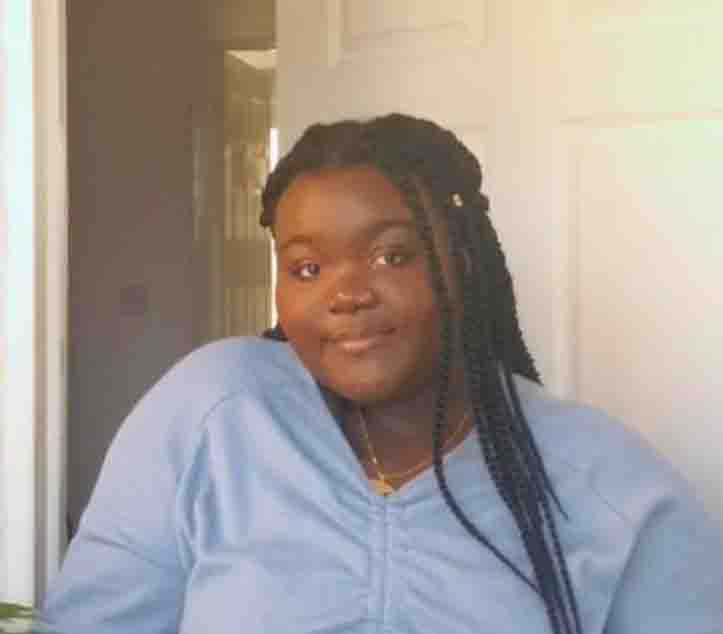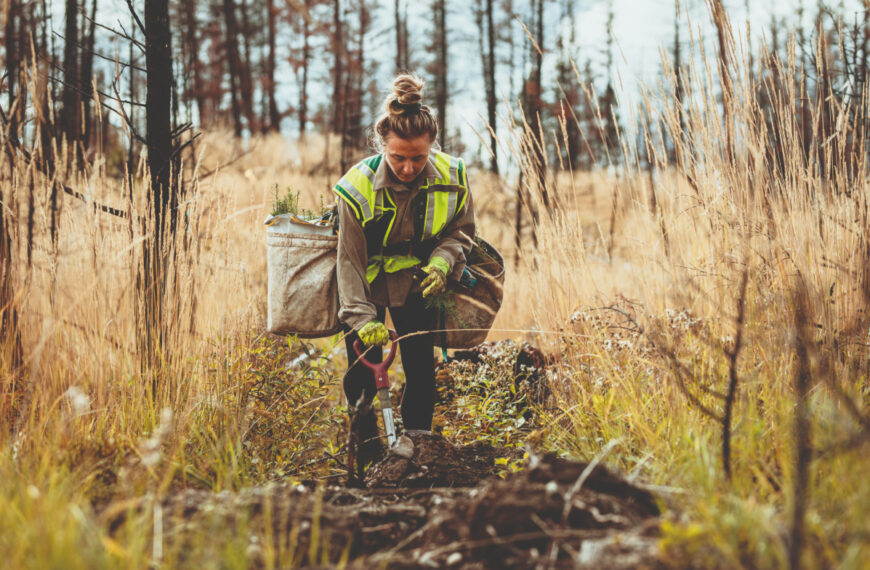
Birmingham University’s Fi Wi Road internship and the Black Research Futures Fair are challenging the future of geography and calling for it to be more inclusive
Since 2021, Birmingham University’s geography department has welcomed 13 interns onto the Fi Wi Road (Our Road): Freeing Up Futures for Black British Geographers summer internship.
Through group sessions, one-to-one mentoring, skills workshops, and hands-on research experience, the Fi Wi Road internship supports Black students in building networks, voice and experience. The goal is to encourage them to stay within a discipline ‘in which black geographers are consistently under-represented, and often brutally marginalised and squeezed out’.
The phrase ‘Fi Wi Road’ comes from Jamaican poet Kei Miller (2014), in a collection that contends with conventional cartography’s colonial violence and considers Jamaican people’s own modes of place-making.
This year’s interns designed and led on creative development for the Black Research Futures Fair – an online and in-person creative space for Black heritage researchers to imagine alternative futures for themselves in research spaces. The fair will take place on 21 September 2022 and will see researchers from around the world and from all disciplines come together to network, share and work towards building research spaces that are radically open and empowering for Black researchers.
We caught up with the project’s coordinators, Cynthia Nkiruka Anyadi, head of partnerships at Black Geographers CIC and a PhD Candidate at Royal Holloway University of London, and Pat Noxolo, a professor in human geography at the University of Birmingham to find out more about the internship and the fair.
Pat, what was the impetus behind the internship?
This is the second year of the Fi Wi Road internship. It came out of desire by myself, and also Black Geographers, to see a more diverse geography discipline, and in particular, to see more Black geographers, because up until now, Black people haven’t tended to do geography, for all sorts of reasons that I think are probably to do with the way the discipline is taught at schools. That is changing, the RGS’s recent report, The Geography of geography, shows fairly clearly that there’s a more diverse cohort coming through at GCSE, which bodes really well for the future. However, the other thing that happens is a leaky pipeline. And that’s been very well evidenced not only for Black people, but also for working class people, people from low income backgrounds and for other people of colour. We lose people at A Level, and again at degree level. As we go up the academic sector, there’s only 50 Black female geographers at professor level, across 23,000 professors. So the idea in setting this up was to try to encourage at least those who have made it to undergrad level to stay with geography, if they can, and they want to.
It’s also important to say that this is not a discipline that necessarily deserves for us to stay. If I put it quite bluntly, it’s a discipline with a colonial history, which it recognises, but doesn’t necessarily confront or challenge. And it’s a discipline that sometimes has forms and institutional discrimination that I’m not necessarily saying people should choose, or have to confront themselves. We’re at a point where, like myself, if they do come in and stay, they’ll probably be the only Black person in their departments. And that’s a lot for people to have to face. And sometimes they don’t want to, and I don’t blame them.
But I guess the main thing for me was to encourage the Black undergraduates who are there to feel not so alone in their departments, and to feel like there’s somebody else with them. It’s not about learning skills. There are internships that have a kind of deficit model that make it look as if the Black person needs to learn skills. It’s not about that at all. It’s more about supporting people so that they can develop a point of view or an awareness of what they want to be as Black professionals. We wanted a sense that they shouldn’t have to lose themselves and become something other than a Black person in whichever profession they are in. If you bring diversity in, you make a better profession. But the only way that happens is if you allow that diversity to do its work, you allow people to be who they are.
Cynthia, what have the interns been working on this year?
This year, the main focus has been on pulling together the Black Research Futures Fair [the fair will take place in person and online on 21 September], which was about the interns running it themselves and making it very student led; thinking about their position within the discipline, what they can bring to it, what conversations they can have between themselves. And they’ve been reaching out to the kinds of speakers that they’d want there.
They’ve also been working on an oral histories project with the Society for Caribbean Studies (SECS), led by Kesewa John and Janelle Rodriques. It’s looking back through the history of the SECS, looking through the archives and interviewing current members, just to talk about what the SECS has done for the discipline, the importance of it as a meeting space, conversation space and a forum for discussions, and then producing an oral history product that can bring them all together in one place so there’s a living history of what’s happening.
Pat, from your experience within the geography discipline, how would you say it has changed, and what are your hopes for the future?
So I’ve been in geography doing my PhD, and then as an academic since 1994. Feminist geographers have always been very important for assisting in making the discipline more open, and I have a lot of friends and people who were very important to my career in those early days. But I remember there being very, very few people of colour and even fewer Black geographers at events. I’m not the only person to state this, lots of people have studied it and noted that it’s a conspicuously white discipline compared to sociology, or law or any of those other kind of disciplines. I think that has to do with the past of the discipline, but it also has to do with the relationship of the discipline with centres of power. It’s also to do with quite problematic representations of Black communities at GCSE and A level. So we’re problems in the inner city, that need to be managed and planned around. And then we’re also problems in the Global South as well. I wouldn’t say geography has been a hostile environment for Black people, but I don’t think it’s been a welcoming one.
That’s really my intention, with the idea that it’s about people in place, and young people understanding that they have a place in the world. I think many geography teachers see it like that, and my geography teacher was very important to my understanding of myself as a Black child in 1970s Britain. My geography teacher was actually one of the very few who was really interested in my generation, that post-Windrush generation, what we were doing in Birmingham, why we were there. And I think he gave me a sense of what geography could be in the future, that it could be freed from keeping the status quo.
For undergraduates, and for these Black interns, they haven’t got that past weighing them down, they want a future. They will envisage a future and they are that future. And I think that we just need to listen to them a lot more, give them a lot more freedom to speak and to tell us what that future should be.
And Cynthia, what was your experience of studying geography and do you think the discipline is changing?
It wasn’t great. Especially at A Level and university. I guess I was a bit luckier as I went to school in London for a fair amount of time. So by the nature of it, I think you are exposed to different stories and different case studies. But it was definitely very, very frustrating at times. I think what’s quite difficult, and it’s something that we discussed with the interns, is that from school upwards you’re being told these stories of communities or of places that are so discordant with your experience of them. And then it leaves you questioning whether what you know is the truth, or whether what you’re being taught and asked to write in exams is the truth.
At least now, particularly with the community I’m in with Black Geographers and people who are very supportive of us, I feel much more hopeful. I think that people are, as Pat said, imagining an alternative and working towards an alternative. Obviously, I think there’s a lot of anger and frustration, and also this feeling of having watched people like Pat, and other academics that we look up to, who have worked for 30 years and are still struggling with similar things, and thinking: do we have another 30 years of having the same arguments with the same people? But at PhD level now, I do think that it is a much more open space, and it is much more willing to picture something that might make some people uncomfortable, or might make some people upset, but that is actually just about standing your ground and saying, this is what we want and this is what we need in order to move the discipline along at a steady pace.
So I think it’s quite a positive place right now. It’s never going to be perfect. There’s no discipline, that’s perfect. But I think I’ve made my peace with those kinds of secondary school and undergraduate experiences, and just said, there’s some sacrifices that you have to make if you want to be in geography and stay in geography.
The Black Research Futures Fair takes place on 21 September. The team are looking to showcase contributions from people all around the world and welcome contributions of all kinds, topics and mediums from Black heritage researchers regardless of their location, discipline or study stage. To register your proposal please fill out this form.
If you have any questions or queries follow the team on twitter or contact [email protected]
The 2022 Fi Wi Road interns:

Isabella Bromfield (she/her)
I have just finished my undergrad in Geography at Manchester. My interests are Black Geographies, Gentrification studies, displacement, decolonising geogrpahy and racial capitalism.

Maia Linley-Adams (she/her)
My name is Maia and I’m currently a second year undergraduate Student at the University of Nottingham. I’m really interested in river conservation and freshwater management, which i hope to explore further during my dissertation.

Regan McDonald (he/him)
I’m Regan, a masters student at the University of Manchester studying MSc Environmental Governance. My interests are in abolitionist and Black political ecologies. I hope to further this through a PhD once I’ve finished my master’s degree.

Bryce Mathurin-Lindsay (he/him)
My name is Bryce and I have recently completed my undergraduate in Geography with Spatial Data Science at King’s College London. I will be continuing on at King’s to do a masters in Environment, politics and Development, this September. I consider myself to be an interdisciplinary geographer and take great interest in the intersections between human and physical geography.

Mahalia Marsh (she/they)
Hi, my name is Mahalia and I recently graduated from Kingston University with a BA in Global Politics & International Relations with a focus in migration studies. I am interested in the geographies of belonging; in particular, how diasporas relate to and operate in both new and familiar spaces. I intend to explore this further in my Masters programme and beyond.







